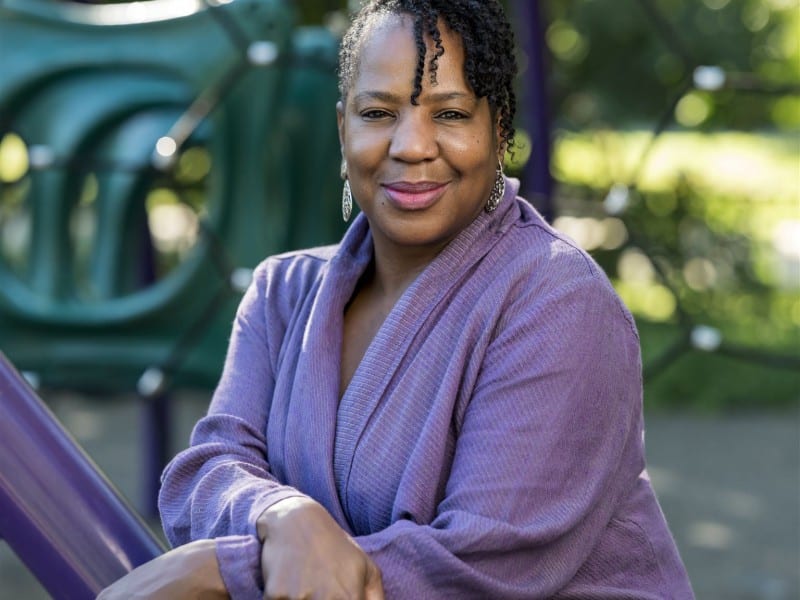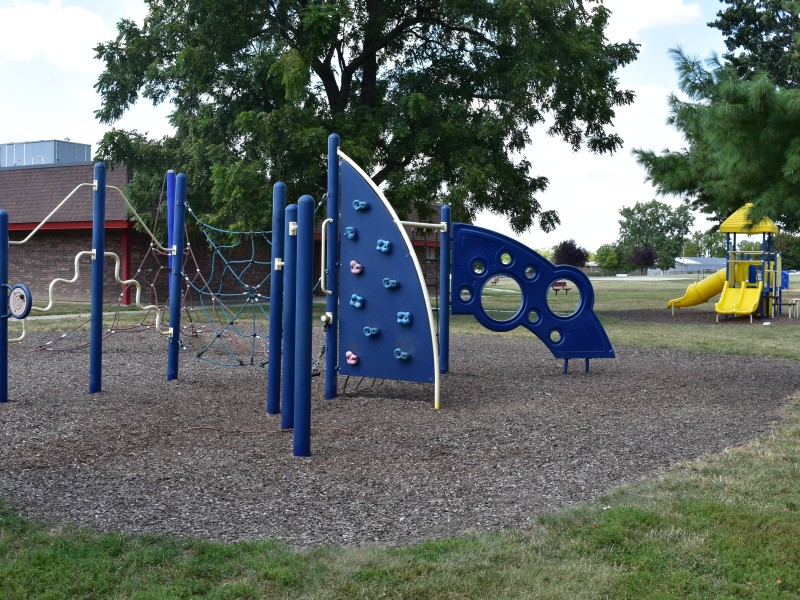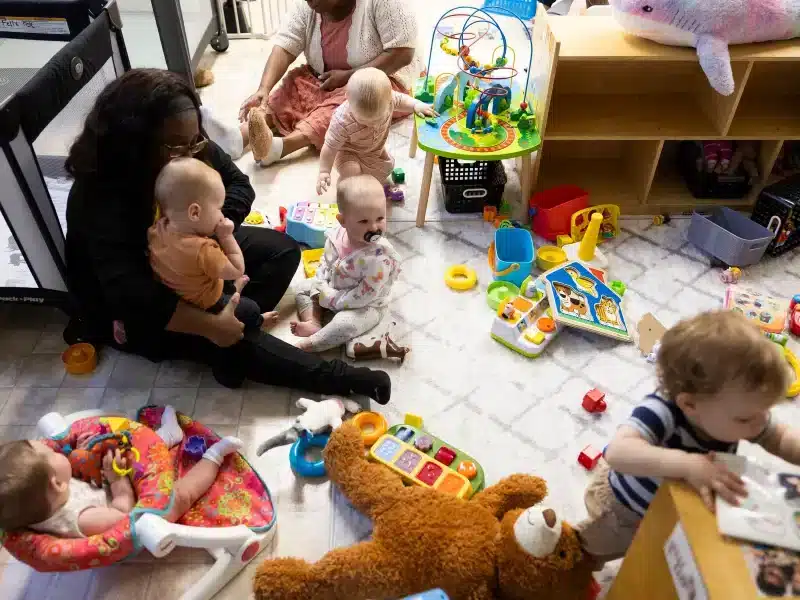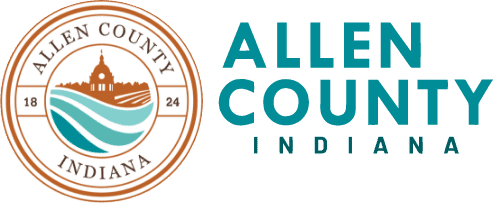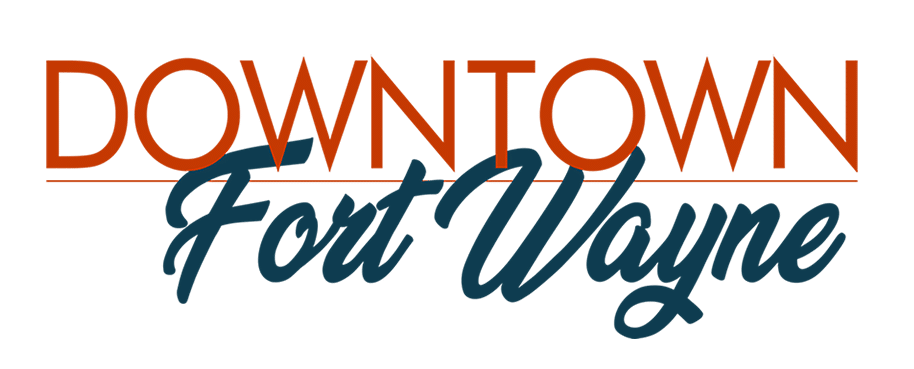This Indiana community is building hope in its future by investing in students
How DeKalb County PROMISE is encouraging students in rural Indiana to realize what’s possible for them—and dream big.
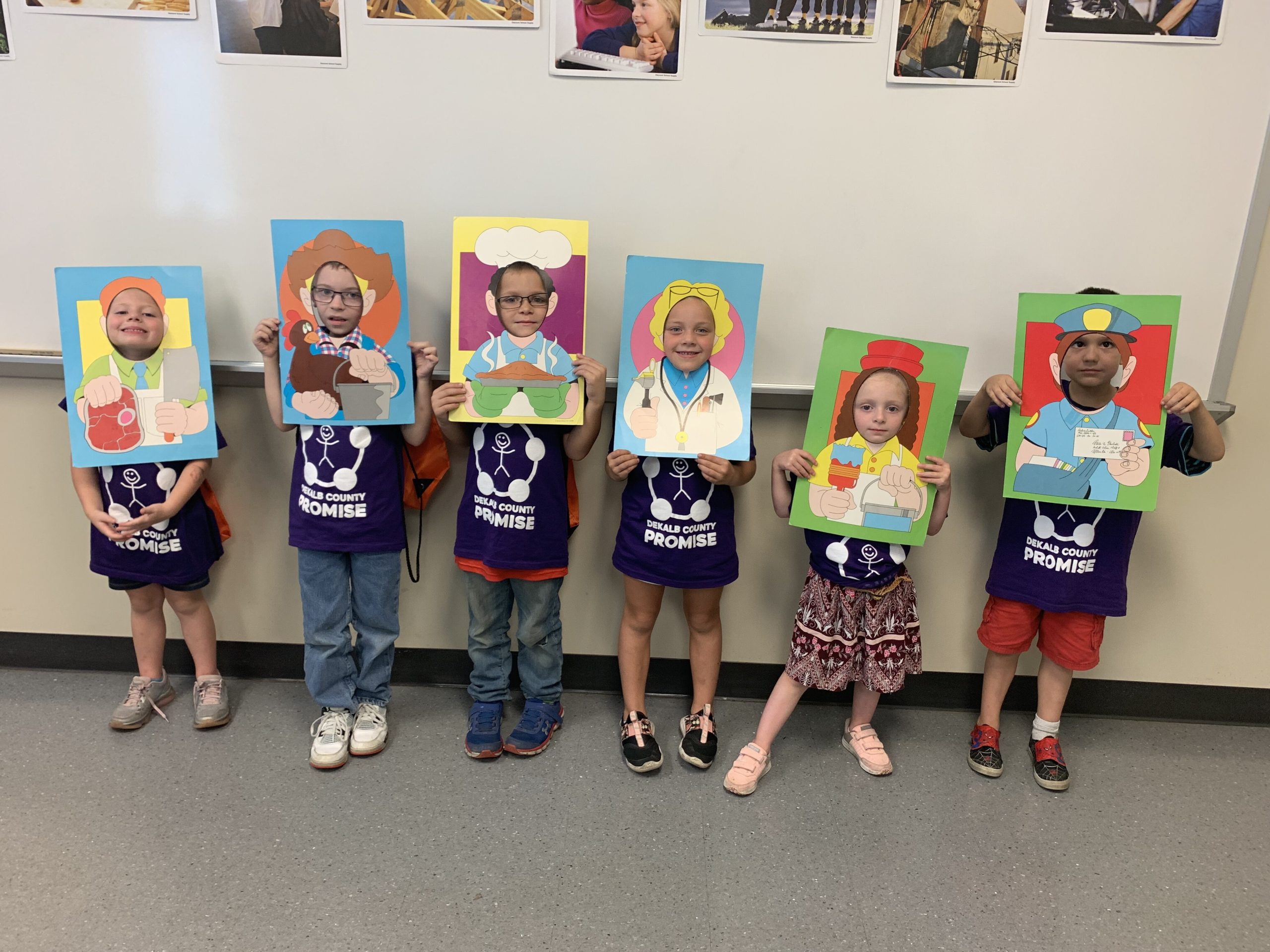
Matt Bechdol of DeKalb County makes it a goal to attend as many Career Day events as possible in northeast Indiana. He goes to events for elementary, junior, and high schools, setting up shop alongside the region’s top employers in healthcare, insurance, and public safety.
But unlike the other booths at Career Day, Bechdol is not trying to sell students on his company so he can hire them someday.
Instead, he’s trying to sell them on a vision for their lives—a vision to dream big, gather life experience by immersing themselves in other cultures, and bring their skills back to enrich northeast Indiana someday.
“All I want to do is tell them what’s possible,” Bechdol says. And he knows what’s possible for a kid from DeKalb County because he used to be one himself.
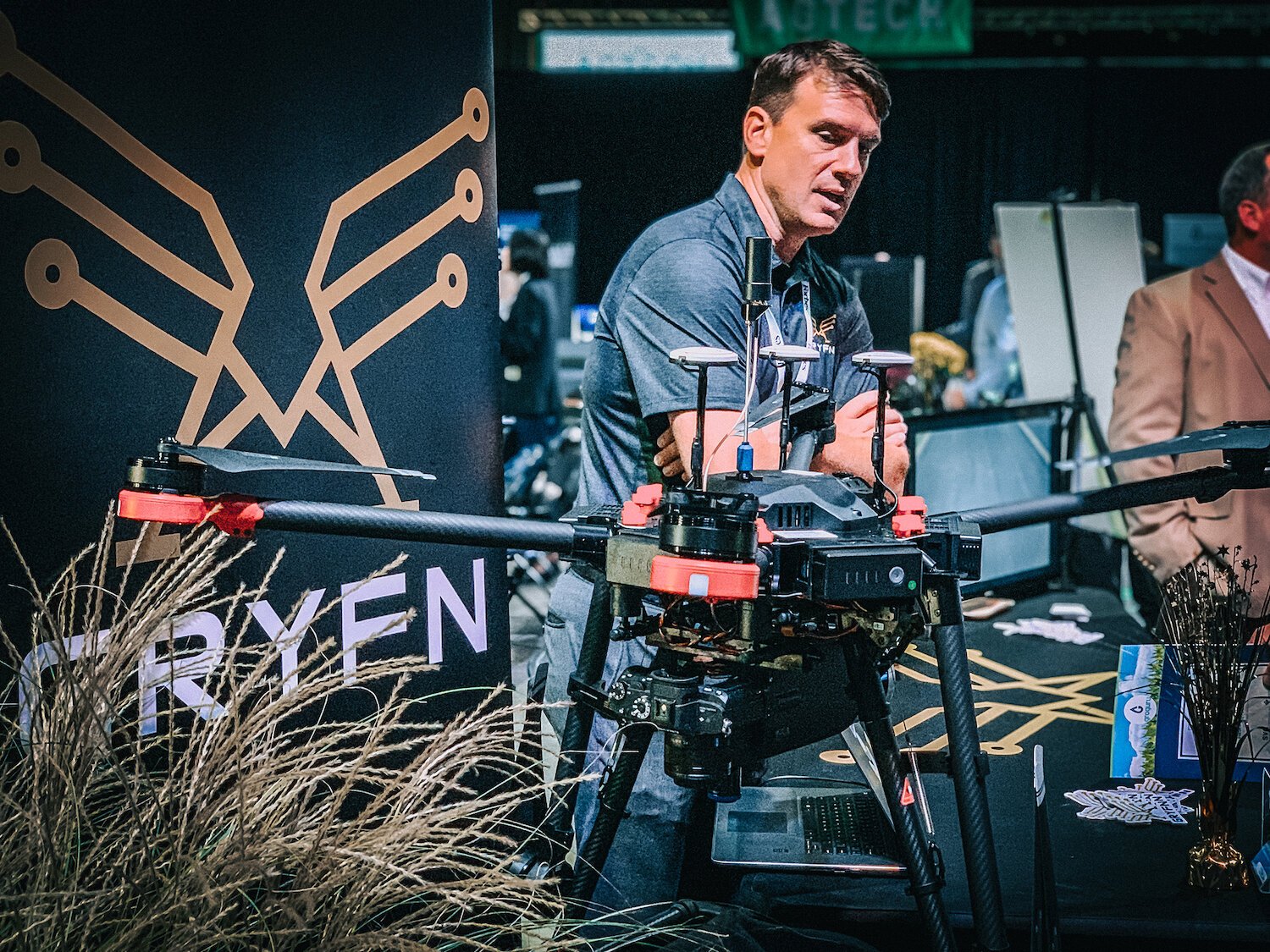
After growing up in the area and graduating from DeKalb High School (later marrying his high school sweetheart), Bechdol earned his undergraduate degree at Indiana University and his masters at George Mason University in Washington, D.C.

With a background in mapping and geospatial analysis, he worked as a contractor for NASA, doing satellite imagery and airplane work in the agriculture industry. He also worked for the largest mapping software company in the world, ESRI, where he led Federal Natural Resources Sales.
But in 2005, Bechdol and his family moved back to DeKalb County, so they could care for his wife’s terminally ill mother. Without losing speed, Bechdol set up an office in his barn where he began working remotely and launched his own company, GeoSilos, in 2011, to bring together data for agricultural solutions using geography.
Today, he works with clients, regionally and internationally, and has moved on to several projects that continue to grow his skills.
“I’m in a little red barn in DeKalb County, pushing terabytes around, doing mapping analytics from rural Auburn,” Bechdol says. “When I meet with students, they always giggle about that.”

But along with making students laugh, Bechdol represents a serious new opportunity for up-and-coming talent in rural Indiana. No longer are cities like Auburn and Garrett limited in what career opportunities they can provide. Now, you can live in a small town and work remotely in many fields, as long as you have the right experience.
The question is: How do you replicate Bechdol’s experience?
“I had the blessing of going to a good school in a rural community, going to college, seeing the world, and then coming back to DeKalb County to invest,” Bechdol says. “How do you give more students the opportunity to have those experiences?”
As a 10-year member and outgoing President of the DeKalb County Community Foundation’s Board of Directors, Bechdol and others are working to answer that question—most recently through a program called PROMISE Indiana.
***
From a young age, some Indiana residents like Bechdol have had the financial and social support needed to dream big and carve out innovative career paths for themselves in the global economy.
But for many students in rural communities, the support structures needed to thrive professionally are simply not in place. They might not have the finances or the family expectation that they can attain education beyond high school.
In 2018, the Dekalb County Community Foundation gathered its stakeholders from every corner of the county, and asked them: What is the most compelling social cause in DeKalb County that the Foundation should address?
The resounding answer was children and families living in poverty, largely due to low levels of educational attainment, says Tanya Young, Executive Director of the DeKalb County Community Foundation.
It’s a problem that is not unique to DeKalb County, but extends across much of the state, often hitting rural communities the hardest.
As of 2020, 60 percent of jobs in the U.S. require post-secondary education of some sort, yet only 30 percent of Indiana residents ages 25-34 currently have a bachelor’s degree or higher.
In other words, there’s a gap in the state’s talent pool. At the same time, the rising cost of college education and the historic lack of post-secondary attainment among Indiana families makes it harder for homegrown talent to fill this gap.
So how can communities encourage and enable the next generation of Hoosier students to thrive?
There’s an old adage that says it takes a village to raise a child; PROMISE Indiana is one way places like DeKalb County are living that out.
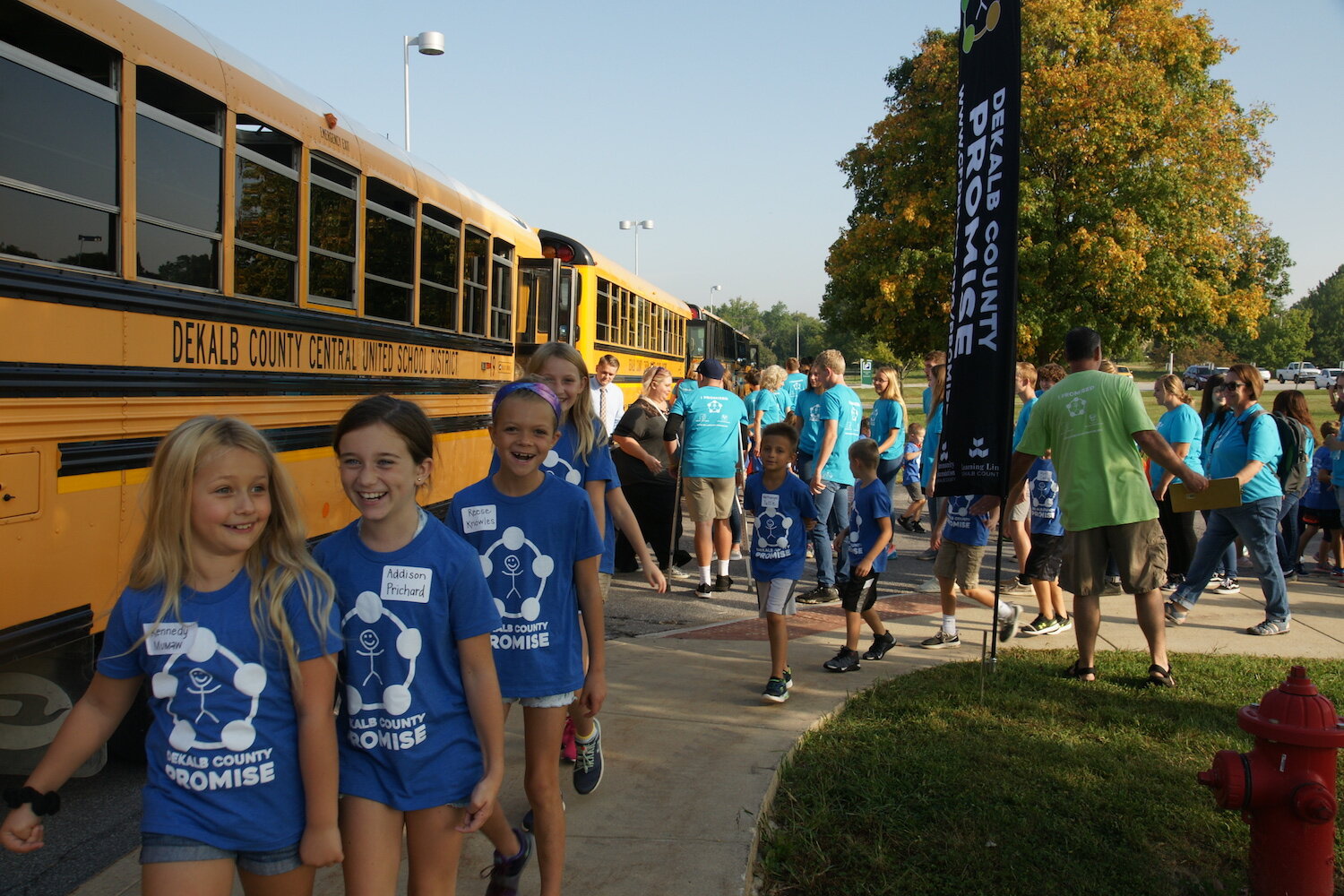
Launched in 2003 by a team in Wabash, Ind., through the Wabash YMCA, PROMISE Indiana has grown into a state-wide program under the Indiana Youth Institute (IYI). It seeks to rally community stakeholders at the county-level behind a “promise” to equip their young students and families to embrace lifelong learning with a three-pronged approach, explains Judy Sorg of the Dekalb County Community Foundation.
First, the PROMISE program requires buy-in from all of the schools in a county to integrate career discovery lessons into their curricula, discussing topics like “Who will I be when I grow up?” and “What does education training and career training look like?”
Second, the program offers a county-wide “Walk into my Future” event for grades K-3, which gives participants the chance to experience a college campus firsthand and learn about careers from regional students and employers.
The third—most tricky—part of the PROMISE program is educating students and families about the benefits of opening a career savings account and breaking down barriers for them to do it as soon as possible.
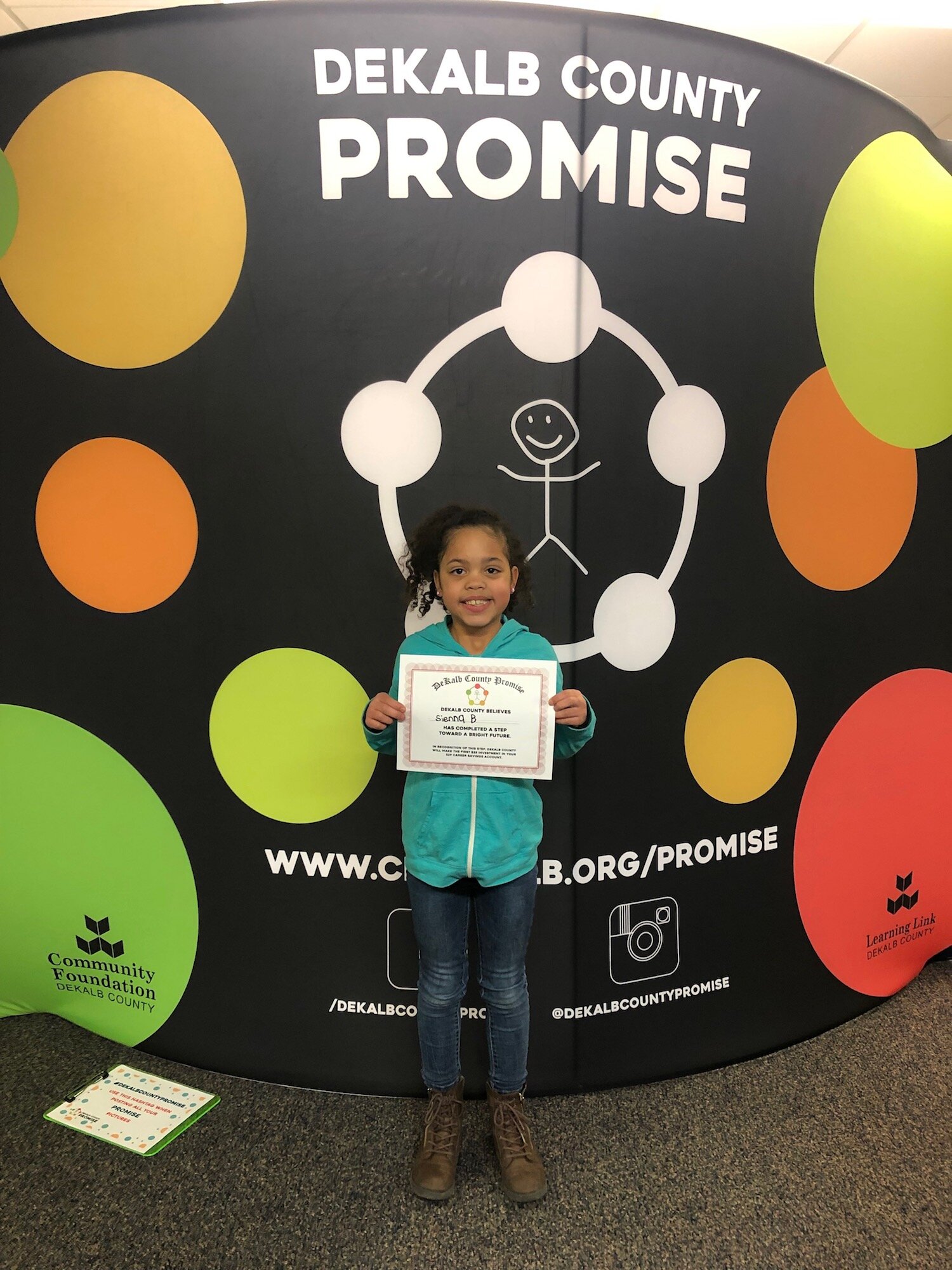
Studies show that low-and moderate-income youth with a career savings account of even $1-$499 are three times more likely to attend some post-high school training and four times more likely to graduate. Yet, only 12 percent of Indiana youth are currently saving for their future through the state’s CollegeChoice 529 Direct Savings Account program.
This is unfortunate, Sorg says, because Indiana’s 529 career savings accounts offer many untapped benefits for students and donors alike.
Contributions to 529 accounts act as tax-free scholarship money toward educational expenses at any eligible two- or four-year college, graduate school, or vocational/technical school worldwide.
On top of that, Indiana taxpayers who contribute to 529 accounts can get state income tax credits equal to 20 percent of their contributions, up to $1,000 per year, which is more than other states offer, Sorg notes.
But for many families to take advantage of these benefits, they have to get over some significant mental barriers to opening a career savings account in the first place.
PROMISE Indiana is a program that helps break down these barriers at all touchpoints.
***
They way PROMISE Indiana works is by encouraging communities to rally around their students as they plan for their futures—and providing them with the initial funding to get started.
First, the PROMISE program requires consensus and collaboration among all of the county’s school districts to help students and families learn about the benefits of career savings accounts and provide signup stations for them to open one.
Then, it requires the broader community to support students in their career savings by making initial deposits into their accounts.
PROMISE programs do this by raising money from county stakeholders, including foundations, businesses, organizations, churches, and the like.
When students open a 529 account through the program, they must ask for a $25 donation from a champion in their life. This champion could be a family member, an educator, or a family friend who believes in them.
Once they have the initial $25 deposit, PROMISE will then match that amount—sometimes 1-to-1, sometimes 3-to-1, depending on how the program is structured in each county, says PROMISE Indiana representative Phil Maurizi.
This seed money gives students and families the incentive to open a career savings account and keep contributing to it, Maurizi explains. But more than money, PROMISE Indiana is ultimately about something less tangible, he says.
It’s about giving students the expectation that they will keep learning after high school and the feeling that they have the support to do it.
“It’s about building hope in communities,” Maurizi says.

Based in Fort Wayne, he leads the state’s efforts to refine the PROMISE program as it expands to more counties throughout Indiana, and he says one of the program’s challenges is overcoming people’s initial perceptions about what a “CollegeChoice 529 account” entails.
“When we say ‘college,’ often people picture a four-year liberal arts degree, but that’s not what we’re promoting,” Maurizi says.
Instead, he explains that the idea is to help Indiana students take a strong, actionable step toward some type of post-secondary education—whatever that looks like for them. The money put into 529 accounts can be redeemed for tax-free withdrawals on a number of qualified educational expenses, including tuition, room and board, computers and laptops, and books.
“I tell families, if you can apply for financial aid for it, you can use 529 for it,” Maurizi says.
It’s more about taking Indiana students from “if” to “when” on post-secondary education and setting them up to be lifelong learners who keep growing and adapting.
***
Currently, there are more than 25 communities participating in PROMISE Indiana statewide.
Since counties must attain consensus among all of their schools, as well as the funding capacity to match deposits for students, it has been difficult to scale the program to larger counties, like Allen (Fort Wayne) and Marion County (Indianapolis), Maurizi explains.
Even so, he’s hopeful that as the program is refined through the Indiana Youth Institute, it will become more accessible statewide.
“PROMISE Indiana is really a trailblazer in this whole field,” Maurizi says. “So, as we evolve, we’re committed to researching and talking about best practices.”
In the meantime, thanks to the leadership of the Community Foundation in DeKalb County, PROMISE Indiana has begun making progress there.

DeKalb County PROMISE launched in the fall of 2018 when the Community Foundation was able to bring all of the necessary funders, schools, and volunteers to the table, Bechdol says.
While the state-wide version of the program is aimed at grades K-3, DeKalb County is extending its program to all students—from preschool to 12th grade—under the umbrella of the Community Foundation’s Learning Link initiative.
“DeKalb County is being really bold,” Bechdol says. “We want to demonstrate hope in every child.”
One part of the PROMISE program that has been taking off in DeKalb County is the “Walk into my Future” event for grades K-3 at Ivy Tech Community College in Fort Wayne.
While other PROMISE programs have walks, DeKalb County’s walk has been one of the most successful in the state, offering students a wide range of hands-on career experiences, says Kassandra Flanagan, Program Manager at Ivy Tech and Co-Chair of the “Walk into My Future.”
In the last two years, the walk has grown to feature 46 stations run by Ivy Tech students and faculty, as well as northeast Indiana businesses and organizations, Flanagan says. One of the most popular stations at the 2019 event taught students about studying to be a respiratory therapist by letting them touch a pig lung and watch it inflate, she adds.
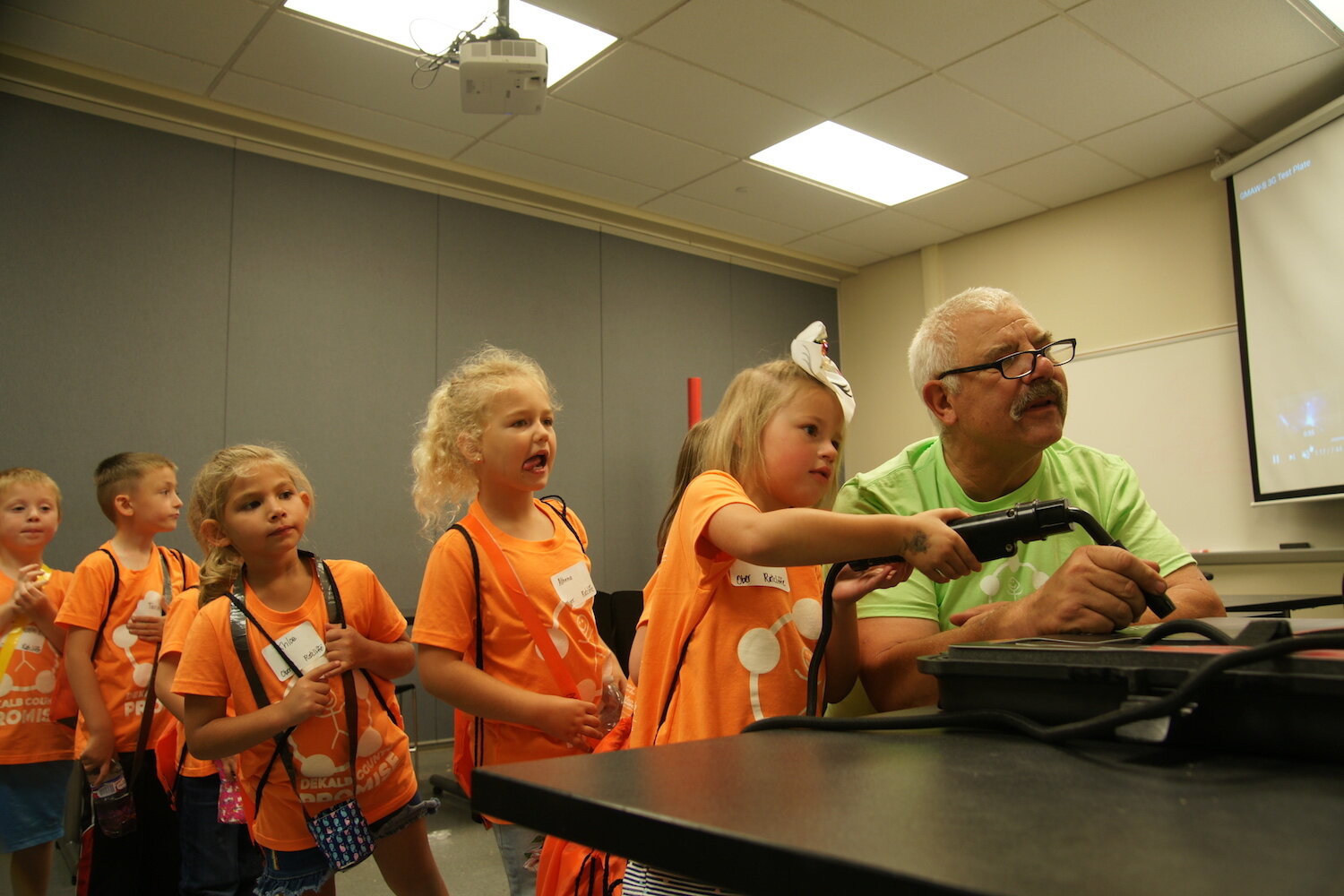
Kimberly Waugh, Director of K-14 Engagement and Transition at Ivy Tech, hopes experiences like the pig lung station help students realize what careers are readily available to them in northeast Indiana.
“The goal is to encourage students to live and work back in the community they are being raised in,” Waugh says.
The reason Ivy Tech was chosen to be DeKalb County PROMISE’s partner college is that it provides training in many vocational and technical trades familiar to DeKalb students, says Ivy Tech Chancellor Jerrilee Mosier.
Even so, as careers and post-secondary education evolve in Indiana, Mosier sees the walk playing another important role in students’ lives: Exposing them to a wider range of careers than they’ve typically experienced in DeKalb County.
“I see the ‘Walk into my Future’ as an exploratory model for kids who say, ‘I know what my mom and dad do, but what else is there out there that I might explore?’” Mosier says. “If students are willing to explore careers as K-3rd graders, it encourages them to keep exploring until they find their true interest.”
Like Bechdol’s booth at Career Day, PROMISE Indiana is about helping students realize what’s possible, and that mission has big implications for everyone, Maurizi says.
“If we can help more students grow up in safety, with hope for the future, it could have a tremendous impact on our state,” he says.


